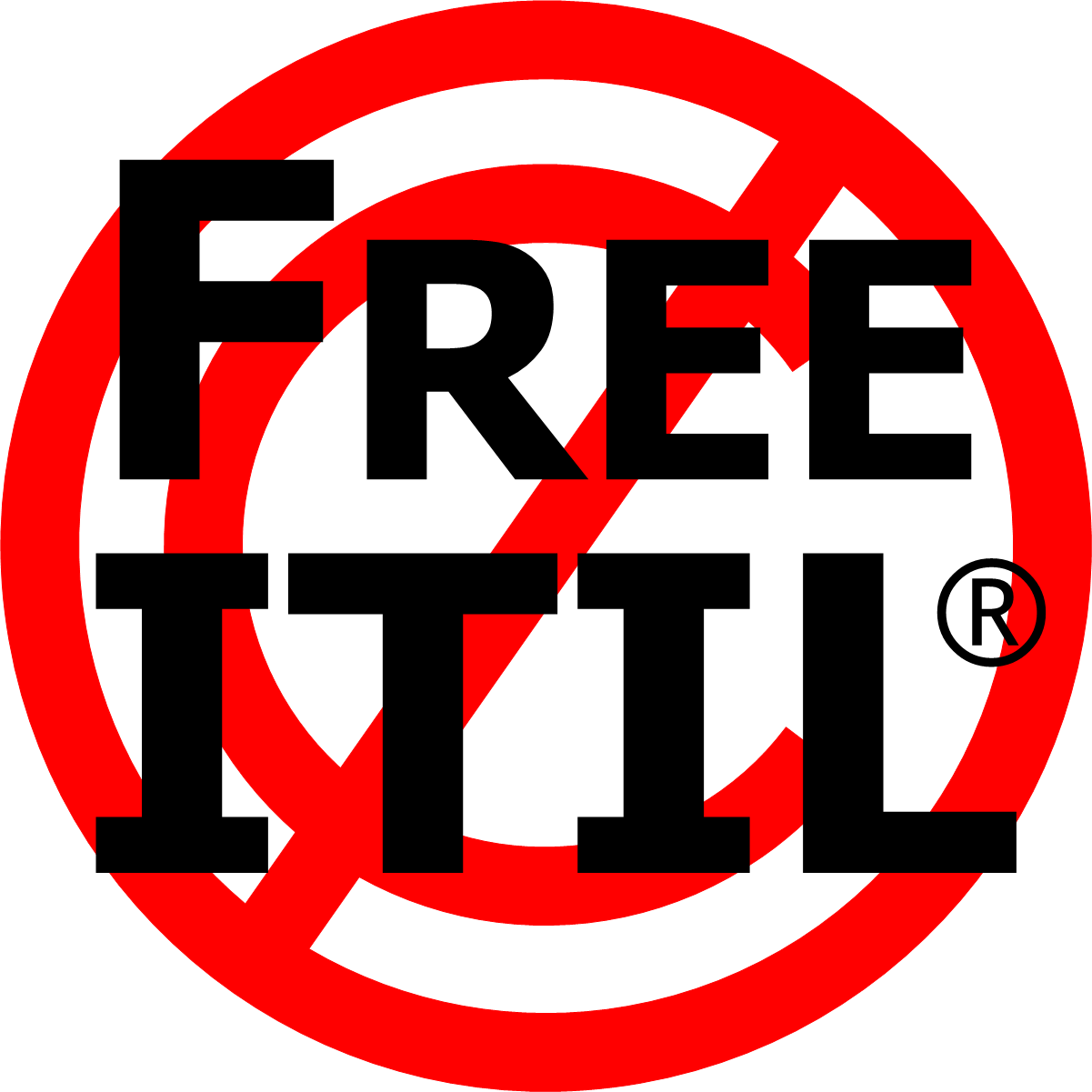Response from British Government to appeals for Free ITIL
The response to calls for an open ITIL has been disappointing, but perhaps should have been expected. It amounts to a single-digit salute from the Brit. Gov.
 Canstock photo
Canstock photo
To date 139 people have digitally signed the petition on this website calling for a Free ITIL. That is 139 emails to The Rt Hon Francis Maude MP, Minister for the Cabinet Office (and Paymaster General). There are millions of ITIL practitioners in the world so I had hoped for more signatures.
I am always surprised by the lack of interest amongst the ITIL masses in the governance of the body of knowledge that forms a foundation of their careers.
Perhaps it isn't apathy. Perhaps Free ITIL is a crappy idea. I thought the arguments were compelling but maybe not.
Or perhaps the world's ITIL practitioners are less naive than me and knew that pounding on the walls of Castle ITIL is pointless. To date that view looks correct.
Initially I received a reply, second-hand, from William Jordan of the Cabinet Office, sent to one of the petitioners, which said
Transparency is a critical forward agenda for the UK government. And we will welcome all suggestions from the public and from overseas about how best to take this forward.
In relation to ITIL, our policy is that the ITIL glossary of terms will continue to be made available through a licensing regime based on the Open Government Licence (OGL). But there are no plans to release further ITIL material on similar terms.
All ITIL data is, however, already published in a way that makes it openly available to its community in a number of accessible formats. And ITIL data is widely accessed and used by ICT practitioners in many countries.
Thank you again for your letter.
In other words it said nothing.
In reply I said "Having read your response I still do not understand the rationale under which ITIL continues to defy the principles of the UKGLF" and I repeated many of the arguments presented on this site.
In correspondence with Mr Jordan's assistant, I also said
The Cabinet Office would seem to need a consistent position on this. For example I draw your attention to the Cabinet Office's Procurement Policy Note "PPN 3_11 Open Standards" which states "When purchasing software, ICT infrastructure, ICT security and other ICT goods and services, Cabinet Office recommends that Government departments should wherever possible deploy open standards in their procurement specifications." Since ITIL is the primary standard for ICT services, and that was its purpose when created, there would seem to be an inconsistency here. I believe any suggestion that ITIL is an open standard - by 21st Century criteria - would be met with derision, especially in the light of recent vigorous enforcement of copyright and trademark.
Around the same time I emailed Joe Harley:
Congratulations on your new appointment at the Cabinet Office as Government CIO.
In response to a request by one of my readers, I'd like to ask the following questions please:
The Government policy is to use Open Standards.
Two Government owned standards are not open: they are purely commercial. PRINCE2 and ITIL. Both of these are owned by OGC, a department of the Cabinet Office. My readers have been petitioning Francis Maude regarding ITIL http://www.itskeptic.org/petition-uk-government-publish-itil-version-3
The ITIL standard costs £295 for the set and is NOT freely available.
Re-users are charged up to 20% royalty: even PhD students have received demands for licensing and payments regarding this standard. Licensing can take up to 6 months.
This is surprising given the Government policy of open standards: if this principle is not applied to Crown Copyright material produced by Civil Servants how can you expect industry to comply?
The UK Government programme is currently advocating the use of ITIL as a standard for the Cloud programme: however as it is not open for free re-use how does this reflect the Government’s policy here?
Please can you confirm whether or not Government’s own material that is a central standard used in roll out of the cloud programme will or will not be made Open Content under the UKGLF?
The response to all this was a letter from William Jordan (pdf here in full) which said:
The Cabinet Office owns, and is responsible for maintaining, a series of best practice guidance which it publishes as the “Best Management Practice Portfolio”, from which it generates income through two service concession contracts, awarded as the result of an open procurement exercise. The current service concession contracts are due to run to 31st December 2013.
Note that the contracts were renewed in late 2010, for two years where the contracts reportedly allowed for up to five.
The products are produced on a commercial basis and in competition with other products in the market; and are not a cost-free by-product of the work of the day to day work of the Cabinet Office.
Change to the basis of current commercial arrangements prior to December 2013 would carry costs to the taxpayer, in addition to the loss of revenue to the UK government.... Any new arrangements will reflect the government policy at that time, not just developments on Transparency and on Open Standards, but also on other areas including, for example, mutualisation.
I don't know what "mutualisation" is, but it sounds like fun.
All Best Management Practice products are made available through our publishing strategy/approach and we enable re-use - though the books do cost money, and we charge for licences where organisations or individuals directly reuse the copyright material and trademarks to support their own commercial activities... All Best Management Practice guidance is, however, already published in a way that makes it openly available to its community in a number of accessible formats, e.g. ITIL content is widely accessed and used by ICT practitioners in many countries...
(Sounds of spluttering) This must be a new meaning of the word "open" that I was previously unaware of. I suspect it is a meaning that dates from before I learnt English.
The Government’s ambition is to make the UK the most transparent and accountable government in the world, and to create the environment for state-owned datasets to be exploited for commercial and social gain... At present, however, the focus is on ‘data’, the lowest level of abstraction from which ‘information’ or ‘knowledge’ is then derived. The Best Management Practices portfolio would be better characterised according to this schema as ‘knowledge’; and our approach to the products reflects that view of their classification.
In other words never mind the spirit of the "ambition", we'll duck out from the letter.
The UK Government specifies ICT standards that are either related to technical infrastructure or to data. The purpose of these standards is to ensure that ICT components and data can be interconnected, shared and reused to [blah blah blah]. We have a strong preference for the specification and implementation of open standards, where feasible, as they enable these benefits to be realised. Our use of the term open standard is therefore related to technology and data rather than to best practices, which in themselves are not standards.
Another hair split neatly down the middle.
Our current informal consultation on open standards (www.cabinetoffice.gov.uk/content/uk-government-open-standards-survey) includes mention of ISO/IEC 2000[sic] ... Whilst ISO standards may not meet our definition of ‘open standards’, in the absence of a standard that fits with our definition of open, we look more broadly for a suitable standard.
 Canstock photo
Canstock photo
It appears to have escaped their attention that a hairy 600lb potential-standard is sitting in their lap licking their face.
You can further dissect the logic of these replies if you want. I won't. This isn't rational. ITIL is owned by the British Crown. OGC are tasked with making a profit from it. APMG and TSO are contracted to run it as a commercial product. itSMF won't rock the boat because they are an industry body not the practitioners' representative. These are the facts. It doesn't matter what you think because ITIL isn't open and won't be open. The gates of Castle ITIL stay firmly bolted. As far as the British Government are concerned you can all go **** yourselves.
P.S. Late last year i contacted the OGC Helpdesk and asked
Since the UKGLF http://www.nationalarchives.gov.uk/documents/uk-government-licensing-fra... DIRECTS central government departments, and since the Office of Government Commerce is now part of the Cabinet Office, does this mean that the IT Infrastructure Library (ITIL, http://www.ogc.gov.uk/guidance_itil.asp) is now available under the terms of the UKGLF, instead of being Crown Copyright Value-Added?
The reply was
Dear Rob,
Thank you for your enquiry to the OGC Service Desk.
ITIL and all the SWIRL products e.g. PRINCE2 MSP etc are all still classed all “value added “ and therefore subject to Crown Copyright licence requirements.
I hope that the information provided is of use to you. Please do not hesitate to contact the Service Desk again if you have any further enquiries.
Kind Regards,
Caroline ****
Service Desk Agent
Marketing and Communications
Office of Government Commerce
Efficiency & Reform Group
Cabinet Office
Rosebery Court
St Andrews Business Park
Norwich NR7 0HS
Fax: 01603 704596
Can I give up now?


 Made in New Zealand
Made in New Zealand 

Comments
Open ITIL
Hi Rob,
Here are a bunch of possible reasons for people not pushing harder for Open ITIL...
I hope this adds value.
My Best,
Frank
The International Foundation for Information Technology (IF4IT)
Open IT Best Practices